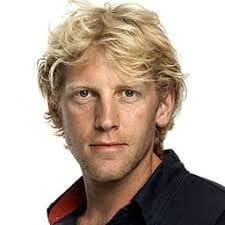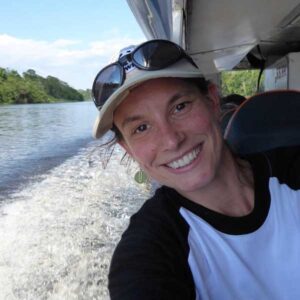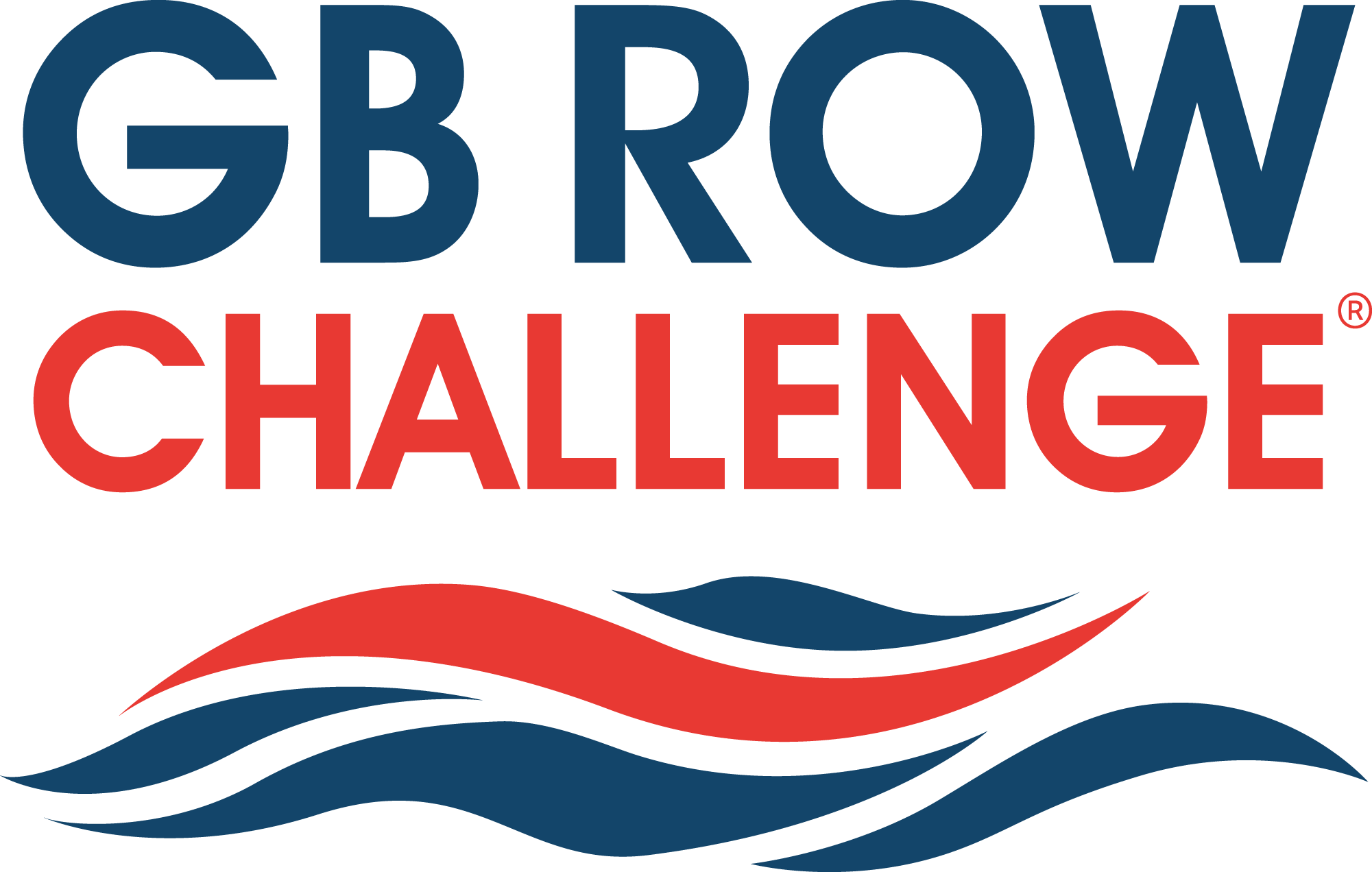About Albatross
Team Albatross raised funds for Active Row, a programme run by the charity London Youth Rowing. Sport is one of the most powerful tools to support and guide all young people, but it’s not a level playing field and those who need it the most face the biggest barriers. Active Row ensures that those who are left behind have an opportunity to find a sport that works for them and access the vital life skills and basic developmental needs they’re excluded from. The benefits of rowing as a sport are clear to us all in terms of structure, teamwork and inner motivation. So we were delighted to be supporting this brilliant charity.
Meet The Team
Click the names below to learn more about each team member.

1) Why GB Row Challenge?
Mid-life crises – needed to do something to really test myself whilst still young enough. Also, because I am a massive show off and wanted to boast about it if I succeeded!
2) Your best and worst experience of the Challenge
Best was flying around Scotland hitting all the right timings on the key tidal windows and seeing the most beautiful things (whales / scenery etc). Worst was trying to make decisions as skipper considering my imperfect, contradictory and incomplete information. Happiest was passing under Tower Bridge at the end – very emotional and amazing.
3) What experience or qualifications did you have before undertaking GB Row Challenge?
I had done a lot of offshore yacht racing 15 years earlier and at that point had coastal skipper and other sailing qualifications. As part of the training, I redid basic nav, sea survival, VHF and first aid courses. Training-wise I really studied the charts and the almanac and worked out where tidal ‘crux’ points were and how to calculate the ideal times to tackle them. I had never rowed before joining the team so also joined my local rowing club who taught me the basics and bought a rowing machine which I used three times a week.
4) The collection of scientific data is an instrumental part of GB Row Challenge, did you find this a hinderance or was it motivating.
Motivating – made it feel like a slightly less selfish pursuit. Having said that I didn’t have to do any of it!
5) How hard is GB Row Challenge? Is it really the World’s Toughest Rowing Challenge.
Bloody hard, because the weather is so unpredictable, and the tides are so strong. I have only done this so can’t say it is the hardest but there is certainly a whole lot more to it than there is to an ocean crossing.
6) What surprised you? What is the most important thing you learned during the Challenge?
I was surprised by how strong the whole crew were in light of adversity. I learnt that the human spirit is strong, from our team and from the people we met through the journey. Taking away comfort and family also really taught me to be thankful for the amazing life I have.
7) What would you do differently if you were to do the challenge again?
I would have done more weight / strength training and core strength training – more important than hours and hours on the rowing machine.
8) What advice would you give to future crews?
Do it – and make sure you agree in advance what your goals are. Finishing is more important than finishing fast and finishing with a well bonded crew is most important of all.
9) What are you missing most now back? What did you miss most when on the water?
I am missing the simplicity of the routine. On water I missed my family and being able to stand up straight
10) What insights or learnings have you gained from the Challenge that you will take back to your normal life?
Be thankful
One quote to inspire others.
It is a rough road that leads to the heights of greatness

A British former rower, Andrew is a three-time Olympic champion at Beijing 2008, London 2012 and Rio de Janeiro 2016, and four-time world champion. In a British coxless four in 2012, he set a world’s best time, which still stood as of 2021. Andrew’s passion for the environment can be seen from the completion of his undergraduate degree in Environmental Science at Staffordshire University, before undertaking his master’s degree in Water Science, Policy & Management at Oxford University. While there, he stroked the Dark Blues to victory in the Boat Race in 2005. Andrew now works with London Youth Rowing and with Thames Water in an initiative to reduce the pollution of the Thames. He is also a keen supporter of the World Wildlife Fund and is one of the charity’s UK bloggers. In 2013, he was awarded Olympic Athlete of the Year for the Sport of Rowing and led the World Rowing Top 10 list for male rowers.

1) Why GB Row Challenge?
I was originally down for another race which unfortunately fell through. I saw the opportunity arise for a place on Team Albatross and applied for it. I love to challenge myself and will always aim to do the most difficult thing I can in any chosen field. GB Row is certainly that among all the other rowing adventures that are out there.
2) Your best and worst experience of the Challenge?
One of the most memorable experiences for me was to see a setting sun and a rising moon both on the same plain, both a deep orange, but at opposite sides of the horizon (at Dungeness). Worst experience was probably getting spaghetti carbonara for the second time as I didn’t like it the first time! Frustrating: rowing into headwind and tide making only 0.5 of a knot in the direction we needed to go. Happiest: being told my rowing style and timing was good (it only took me 30 days to get it right!).
3) What experience or qualifications did you have before undertaking GB Row Challenge?
I am a qualified RYA Coastal Skipper with more than 8000 tidal sea miles to my name. I have sailed the Atlantic twice and have also owned and sailed my own boats single-handed around the Mediterranean. Prior to GB Row Challenge I had spent 18 months training on the ERG where I clocked up 4 million metres and also took part in the NOMAN race (4 days) from Barcelona to Ibiza. With this I also attended the Rannoch 48 hour safety weekend with an overnight row; a familiarisation day on the NOMAN boats on the water and a 2-day row with Team Albatross.
4). The collection of scientific data is an instrumental part of GB Row Challenge, did you find this a hinderance or was it motivating.
Definitely very motivating. To be a part of something that would help us understand our waters and be able to produce definitive results that can hopefully make a difference was very special and I can’t wait to see the data!
5) How hard is GB Row Challenge? Is it really the World’s Toughest Rowing Challenge.
It is difficult to define ‘hard’ as there are so many factors to take into consideration: duration, weather, physical fatigue, mental fatigue, the daily grind etc. I have only rowed two events but, given that I have rowed both open water and coastal water, based on the proximity to land and all the dangers this brings, GB Row is by far (IMHO) the hardest event out there.
6) What surprised you? What is the most important thing you have learned?
How easy it was to work in a team I had only joined weeks before the race and where I knew nobody before starting. What have I learned: six heads are better than one and alignment is essential for a team to function well.
7) What would you do differently if you were to do the Challenge again?
I would certainly pay more attention to personal snacks and treats for a start. I would also want to be a part of something from the outset so that I had more time to get to know the team, the boat and the route. It worked on this occasion but this might not always be the case.
8) What advice would you give to future crews?
Consider the detail but don’t be too fixated with it, things can and will change! Plan ahead. Have options. Keep a detailed log (written/photography) so that you can have a concise log of your adventure recorded at a time when things are happening and fresh in your mind. Enjoy the journey both literally and metaphorically.
9) What are you missing most now back? What did you miss most when on the water?
I am missing the challenge, the simplicity of life, the team, the structure and goal. I missed my dog, now and again (don’t tell her!).
10) What insights or learnings have you gained from the row that you will take back to your normal life?
With hard work and self-belief anything is possible. So much so that I have now signed up for 6 Ultra Marathons in preparation for the Dragon’s Back Race in Sept 2023 which is considered to be the hardest multi-day mountain Ultra event in the world. I also hate running and am pretty useless at it!! Everything is temporary and will change for the better (or worse) at some point. Be flexible and accept whatever comes your way.
11) Would you recommend others to give GB Row Challenge a go and why?
I would highly recommend that individuals or teams give GB Row Challenge a go because it will test you to the limit and take you on a journey of self-discovery that you would not necessarily find elsewhere. The GB coastline is also such a majestic landscape. In all my life travels to date, I have never seen anything as stunning as the Western Isles and the West coast of Scotland!
One quote to inspire others
“Twenty years from now you will be more disappointed by the things that you didn’t do than by the ones you did do. So, throw off the bowlines. Sail away from the safe harbour. Catch the trade winds in your sails. Explore. Dream. Discover. ”

1)Why GB Row Challenge?
Why? The question that everyone asks… There is probably a deep psychological reason but fundamentally, to see if I could. And I’m pleased to say that I can.
2) What was your best and worst experience of the Challenge?
I’m not sure that putting tags on experiences like ‘best’ or ‘worst’ is necessary. The whole experience was incredible, I’ve learned much from it about myself and others. However, I had certainly underestimated how difficult it was to get to the start line with a crew and boat ready to undertake such a task. It was difficult to balance my professional and personal life with a 4 to 6 week rowing adventure.
3) What experience or qualifications did you have before undertaking GB Row Challenge?
Initially, I was an experienced inland water rower and I had some sailing experience in the Channel.
In preparation for GB Row, I passed the RYA Day skipper certificate, RYA VHF certificate, RYA First Aid certificate and the RYA Sea survival certificate. In addition, I started the RYA Yacht Master course but did not have time to complete it. However, the advanced navigation, meteorological and tidal information was useful.
Finally, I spent time on the GB Row boat at sea to gain experience of ocean rowing.
4) The collection of scientific data is an instrumental part of GB Row Challenge, did you find this a hinderance or was it motivating.
No hinderance at all, it was just one of many tasks that had to be completed each day. I’m proud to have done my bit in helping collect the samples and I am very excited to see the results of the analysis which will be of huge scientific value.
5) How hard is GB Row Challenge? Is it really the World’s Toughest Rowing Challenge.
There were certainly moments and days that were more challenging than others but with the help and support of the team they were few and far between. I was physically robust throughout the row and only suffered from some aches and pains that would eventually disappear. Psychologically, rowing 2 hours against a tide and/or wind with sea water going down my neck whilst advancing only half a mile did provide me with an opportunity to reflect. Surprisingly, the calmest seas were the most exhausting as the conditions did allow for some serious pulling. It is certainly the most physically and emotionally demanding thing I’ve ever done.
6) What surprised you? What is the most important thing you have learned?
As previously mentioned, getting a complete crew and boat to Tower Bridge was a huge challenge. Albatross was my third crew and Albatross itself had gone through several crew changes leading up to the start. Indeed, I was drafted in 3 days before the start. I’ve learned to be adaptable and be ready for uncertainty but don’t compromise your own values just to get on a boat. Make sure that each crew member is participating with the same motives, expectations and appetite for risk.
7) What would you do differently if you were to do it again?
Being physically robust to avoid injury is essential. I believe that the best training is done on the water, not on an erg, and to stretch a lot.
I took virtually nothing and required virtually nothing on board. However, the crew had prepared the boat extremely well and I never found myself needing of anything.
8) What advice would you give to future crews?
It’s all about the team. Get the team right and you will succeed. I would invest as much time as possible in spending time together to ensure you are compatible. Don’t forget your land-based team to help with weather etc.
Plan your route on land before you leave and be aware of any difficult points. There will be some. Think about options depending on different weather conditions.
Ask for help and advice. Other people have already done this and their experience will be useful.
Just commit yourself to doing GB Row Challenge and make it happen. No excuses. Never, ever give up on getting to the start line.
9) What are you missing most now back? What did you miss most when on the water?
I’m missing the team and the routine.
When on the boat, it goes without saying, I missed my wife, children and dog.
10) What insights or learnings have you gained from the row that you will take back to your normal life?
It’s about the team! Finding the right people to work or socialise with will only enhance life.
11) Would you recommend others to give GB Row Challenge a go and why?
Absolutely yes. GB Row provides an excellent package and, in my opinion, offers the most accessible ocean rowing experience. If you are serious about doing something like this, there is no easier way of doing something so difficult.

1) Why GB Row Challenge?
Accidentally signed up by a colleague! But I was hankering for an adventure, and the idea of ocean rowing had been seeded a while back. The environmental side of things made this the opportunity I jumped at, as I’m an environmental scientist myself and care deeply about marine biodiversity.
2) What was your best and worst experience?
Worst: first time the sea state got bad in the Irish sea. It changed very fast at night and we came back on shift to find the sea very different to how we had left it two hours earlier! I hadn’t figured out how to row effectively in big waves and kept getting the oar handle jammed against my legs – the weight of the water was scary, I remember thinking it was a really silly idea to put a rowing boat on the sea… by the next session we figured out how to work with the waves and flew along for the next couple of days!
Best: Hard to choose. The sunrises and sunsets on calm days were just magical, slipping beneath cliffs teeming with seabirds, rowing alongside dolphins and whales, the feeling of our team becoming a well-oiled machine. Rounding Cape Wrath on the Northwest corner of Scotland was probably my favourite single moment. There was a rainbow, a sunset and dolphins all at the same time and we’d finished going North!
Frustrating: Almost flying past Flamborough Point and then being beaten back by the changing tide at the last moment and having to wait 30 hours for the next wind/tide window to finally get past it.
3) What experience or qualifications did you have before undertaking GB Row Challenge?
I’d rowed for many years at club level, but only on rivers and lakes! GB Row Challenge was my first real introduction to Offshore rowing and the qualifications I gained during the preparation were just the beginning of the journey for me. I did have some expedition experience, mostly travelling along rivers in the Amazon.
4) The collection of scientific data is an instrumental part of GB Row Challenge, did you find this a hinderance or was it motivating.
Highly motivating! Because there are so many uncertainties with adventures like this, it’s important to have multiple aims and goals. Once the chance of a record and an unsupported row were gone, the data collection was a really important reason for us all to be determined to continue the journey. And we were so glad we did!
5) How hard is GB Row Challenge? Is it really the World’s Toughest Rowing Challenge.
It’s definitely hard!! Apart from the ‘usual’ Ocean rowing challenges of rowing and resting in short shifts (2 hrs in our case), dealing with exhaustion and living with others in a very confined space, the
hardest thing about rowing around GB is the tides; every day you have to renavigate based on exactly where you are at what time and how you expect factors such as wind, tides, land and water depth to interact ahead of you. Information is always to some extent incomplete, there are many judgement calls to be made every day in which you balance speed and progress against safety and the availability of safe refuge. This places huge responsibility on the skipper / navigator but also on crew communication and decision-making processes.
6) What surprised you? What is the most important thing you have learned?
I was really surprised about how well and how quickly our bodies adapted to what was asked of them. Within a few days the exhaustion eased (off-shifts started to feel longer than the on-shifts), and while various joints and muscles had a go at complaining in the first week, each niggle disappeared quite fast and then they all stopped. I was also surprised by how fast the sea state changed – in both directions!
7) What would you do differently if you were to do the challenge again?
I wouldn’t worry so much about doing lots of ergs and long cardio sessions in training but would focus on strength (rowing into a headwind is much like deadlifting) and conditioning to ensure robustness against injury. I’d do a better job at learning to tie different types of knots!
8) What advice would you give to future crews?
The team is everything!! Choose your skipper well – the most obvious leaders are not always the best ones – and think carefully about what kind of leadership you want. Know each other’s strengths and weaknesses and have clearly defined roles and responsibilities for each crew member; the rowing itself is only one aspect of the challenge. Beware of big egos, and make sure everyone’s voice will be heard. Be cognisant of different levels of confidence, experience and risk appetite within the crew. Talk about how you do things and reflect on how it could be improved. One of the best things we did was to cycle the rowing teams each day so that everyone had a chance to row with everyone else and we didn’t fall into factions within the crew. It also mixed up the vibe and the chat and ensured everyone had an equal amount of time with the cabin to themselves for some personal space.
9) What are you missing most now back? What did you miss most when on the water?
Now: so many things but most of all the crew – we were a close team that functioned better and better as time went on, and that’s a rare thing to find.
On the water: Lie-ins and standing up things!
10) What insights or learnings have you gained from the Challenge that you will take back to your normal life?
I learned a huge amount about effective teamwork and was reminded that things that seem scary to start with quickly become familiar and quite manageable when you sit in them for a while! I’ve regained a sense of perspective about what’s important to me and what isn’t.
One quote to inspire others
With an adventure, the only thing you can be sure of is that it won’t go to plan. But if you let it, whatever it becomes will be totally unique and special in its own right.

1) Why GB Row Challenge?
I took part in GB Row because I passionately believe in its environmental element. Collecting data to contribute to evidence-based research for us to be able to evaluate the human impact on the environment we live within is critical. Collecting that data year on year to enable us to assess the rate and affects of ocean pollution is so important. Please get involved so that you can collect the second layer of data so that we can compare and contrast year 1 to year 2 to year 3 etc.
The second reason I took part is to have a bit of time out. For me it’s been a really busy seven years and the simplicity of eat, sleep, row, collecting data and seeing the UK from the outside in was, what I felt, what I needed, not as a break but as doing something different from the day-to-day hard work of normal life….and it was amazing, it lived up to all my expectations.
2) Your best and worst experience of the Challenge
Setting off and getting back were two amazing experiences. Getting to know a team of extraordinary people that I had the privilege to row with. It’s funny, sometimes the hardest times, such as the Storm in the Irish sea, although are in a way the worst are also the best because that’s when you see people’s true colours. Everyone worked together and pulled together as a team, contributing to collective decisions.
The worst experience for me personally was having to make that call having to be picked up by the RNLI. Putting crew safety first is paramount, the vessel comes second. But then it was also an experience that bought the team together and we got up to go again afterwards which I think is a testament to the team.
Most frustrating was having to wait out tides and weather windows.
Happiest moment – seeing minke whales encroach upon our boat or seeing dolphins swim up beside the boat. Being, rowing, eating and sleeping within the elements was mind blowing and a reminder of how lucky we are to live on this mind-blowingly beautiful coastline.
3) What experience or qualifications did you have before undertaking GB Row Challenge?
Sea Survival, First Aid at Sea, VHF SRC
We did a huge amount of training as a team. The 5-day row from Plymouth to Portsmouth was a brilliant shake-out of what we did. We also did the prerequisite 200 hours on the water. Due to limited time and work processes, I tried to combine a lot of my training around work – i.e. I was cycling everywhere every day, to and from work and between meetings. I also spent some long sessions on the rowing machine watching Netflix videos. I was privileged enough to take part in the row in 2005 which served as a good indicator for what was coming.
Getting a base level of fitness is really important but the mental challenge is what this is all about. My advice, if you were undergoing this, is don’t think it’s mission-critical to be hugely fit – it’s about being mentally robust and having a good team.
4) The collection of scientific data is an instrumental part of GB Row Challenge, did you find this a hinderance or was it motivating.
Collecting data was a really motivating factor in helping us understand the oceans that we live in. This became especially apparent when we were hit by the biggest summer storm in the Irish sea that the local fisherman and RNLI have seen in their lifetime (40yrs). When we got back, we were hit by heatwaves in London at temperatures never recorded before. There’s an irony to the fact that we were mulled by the environment we were collecting data to protect.
The University of Portsmouth have been so grateful for, not only the amount of data being collected but also the critical ability to compare it year on year, as long as teams out there take part to collect the data. Hopefully it will be a powerful demonstration that we really need to change our behaviour when it comes to looking after our oceans.
5) How hard is GB Row Challenge? Is it really the World’s Toughest Rowing Challenge.
It is a tough event. The mental difficulty is that it will really test you as an individual and as a team. I do believe it’s the toughest row because it’s a thinking game – you’re not only having to navigate, but you’re also having to deal with weather systems, you’re having to judge tides. The navigation involves coastal waters which can be treacherous – it makes it interesting and stimulating and fascinating and layered on top of that you’re passing through shipping lanes. So, there are all sorts of elements that keep this a really interesting and hard event. Not everyone’s successful -we weren’t successful in getting around unsupported in 2022 but we did still get around. That shows how tough it is.
6) What surprised you? What is the most important thing you learned during the Challenge?
What surprised me was how amazing the team was at coming together. The most important thing I learnt was to listen to all concerns on a boat because if your team falls apart, the race falls apart. There’s a very fine balance between listening and leadership. Maybe compassionate leadership is a key peace there because everybody experiences hardship differently and the most important thing is keeping a cohesive team together so that it’s an enjoyable experience.
7) What would you do differently if you were to do the challenge again?
No reply given to this question,
8) What advice would you give to future crews?
Be really clear on your objectives as a crew. Be absolutely open as to why you’re doing it. Is it to get around the Great Britain? Is it to enjoy the environment? Do you want it to be the fastest time at all costs? You need to make sure you’re all aligned. One of our objectives was to make sure we stayed together as a team – that was more important than the fastest possible time.
Train together. Make sure you have trained reserves. Sadly, people do drop out at the last minute and that can be really unsettling. Make sure you have people you can rely on.
Have a full-time meteorologist on shore so that you can lean on their advice. Individuals on the boat may all have their own weather apps that will lead to different opinions. Relying on one person makes it much easier as one point of wisdom and advise.
9) What are you missing most now back? What did you miss most when on the water?
The simplicity. Eat, sleep, row, repeat. Being and living within the environment is really special. Seeing nature at such close proximity was magical. I also miss the close comradery in being with a team.
10) What insights or learnings have you gained from the Challenge that you will take back to your normal life?
What insights or learnings have you gained from the row that you will take back to your normal life?
Less is more. Try and slow down. It’s really amazing what you can achieve as a team working together towards a common goal.
11) Would you recommend others to give GB Row Challenge a go and why?
100% recommend others to take place on GB Row. There is more in us than we think. We have more capability as human beings than we believe in – it’s just amazing what we can do positively when we’re all pointing in the right direction. Seeing Great Britain from the outside in is something I’ll never forget and for me, personally, it sounds silly, but I love being on a plane and seeing the coastline or seeing Great Britain on a map and thinking ‘yes, I’ve rowed around that’ I’m a very visual person and it’s a beautiful thing to see. Do it, experience it and enjoy the journey.
One quote to inspire others?
“It is not the critic who counts; not the man who points out how the strong man stumbles, or where the doer of deeds could have done them better. The credit belongs to the man who is actually in the arena, whose face is marred by dust and sweat and blood; who strives valiantly; who errs, who comes short again and again, because there is no effort without error and shortcoming; but who does actually strive to do the deeds; who knows great enthusiasms, the great devotions; who spends himself in a worthy cause; who at the best knows in the end the triumph of high achievement, and who at the worst, if he fails, at least fails while daring greatly, so that his place shall never be with those cold and timid souls who neither know victory nor defeat.”
I love this quote because it’s about giving it a go. Even if you’ve failed, at least you’ve given it a go. Failure for me is about how you get up again. Life is full of failure, it’s never a linear path. So often in this social media world we’re presented with success everywhere without realising the hardship that everybody experiences.



